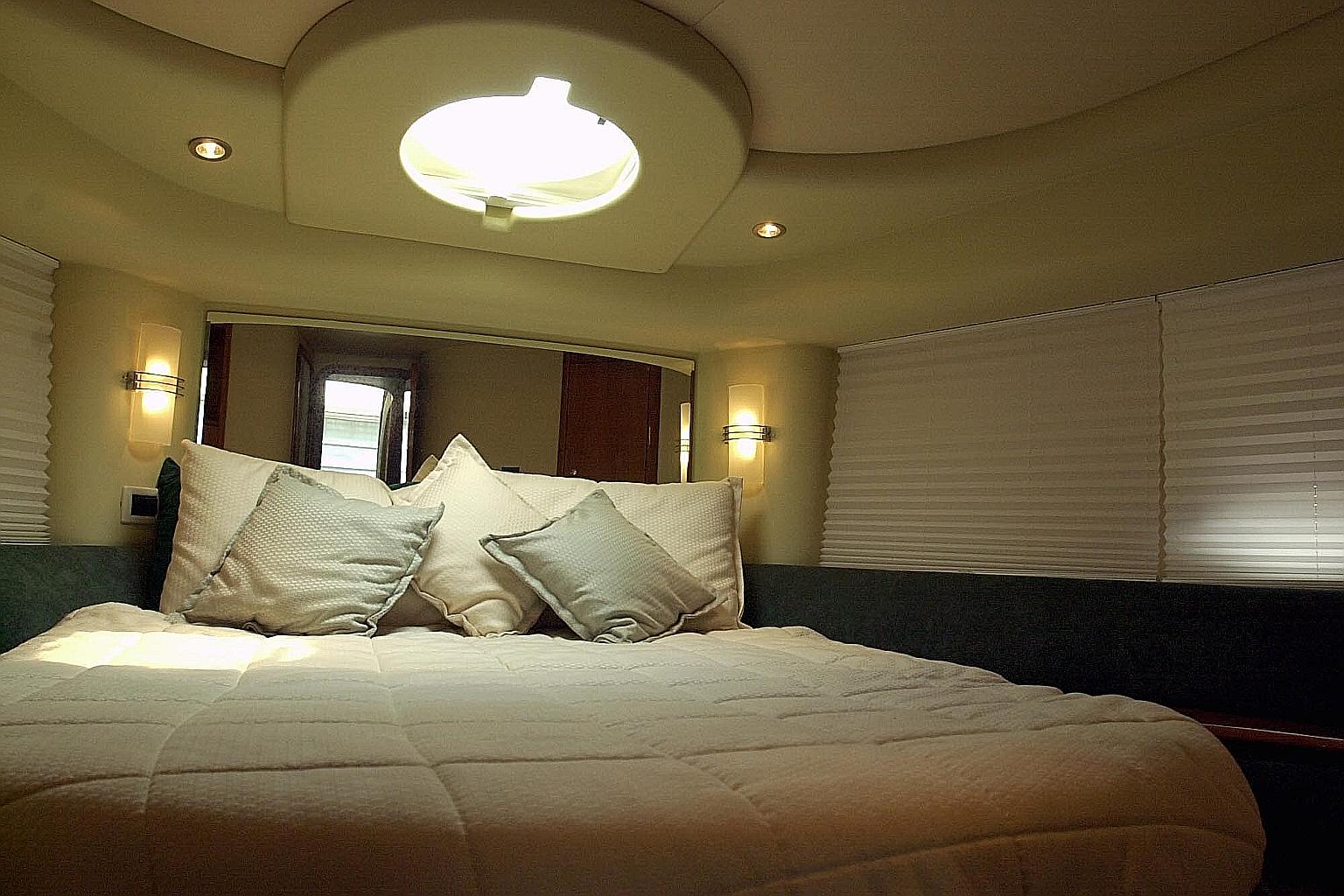Ask The Experts
Is snoring the cause of my high blood pressure?
Sign up now: Get ST's newsletters delivered to your inbox

Snoring is frequently deemed a social nuisance - not to the snorer but to the bed partner.
ST FILE PHOTO
Follow topic:
Q I have a bad snoring problem that is affecting my partner.
She tells me that I look like I am gasping for air.
I wake up tired and unrefreshed. I have high blood pressure and am slightly overweight.
I have tried the nasal continuous positive airway pressure (CPAP) device but cannot get used to it.
Is my snoring the cause of my high blood pressure and what options do I have besides CPAP?
A Snoring is frequently deemed a social nuisance - not to the snorer but to the bed partner.
The presence of snores is an "alarm" that alerts one to the possibility of obstructive sleep apnoea (OSA).
This condition arises from the vibration of the tissues in the mouth and oral cavity.
Bulky soft tissues in the mouth lead to collapse and cause upper airway obstruction during sleep.
People with a small jaw will also have less space available, which increases the likelihood of airway closure or blockage during sleep.
This airway blockage causes one's breathing to stop and his oxygen intake during sleep to be low. This, in turn, causes the person's heart to beat faster and the blood pressure to rise, which translates into an elevated risk of high blood pressure, stroke and heart attack.
Patients may complain of waking up often at night with a choking and gasping sensation, nocturia (frequent passing of urine at night) or frequent nightmares.
Bed partners may witness their partners choking and holding their breath during sleep.
Patients with severe OSA may be unable to sleep on their backs, as this causes the tongue to fall backwards and obstruct the airway.
Common patient complaints include daytime tiredness and morning headaches, dry mouths and throats - a result of breathing through the mouth and snoring.
Other symptoms include forgetfulness, depression, irritability and impotence.
As you are slightly overweight, losing weight and exercising regularly might help. Other conservative treatment measures include sleeping on your side and staying away from smoking and alcohol.
Nasal CPAP entails the use of continuous positive airway pressure by wearing a nasal mask throughout the night.
This non-invasive method is effective and often used to treat OSA. But patient non-compliance is a huge problem. This is because the device is uncomfortable and hard to wear, and the patient must use it every night, for life.
Surgery to treat OSA ranges from reducing the soft tissues in the mouth to enlarging the skeletal framework of the jaw.
The traditional palate operation can be done together with other nasal procedures.
A method called Pang's expansion pharyngoplasty, which I invented in 2006, has been shown to be effective in selected patients with OSA.
This procedure addresses the side walls of the throat, which is the common area that collapses during sleep apnoea. It has been adopted by surgeons in other countries.
So far, the success rates for this procedure are good - generally higher than for older methods.
A meta-analysis of expansion pharyngoplasty was published in the international European ENT journal last month.
Other surgical treatments have also been shown to be efficacious - though not as much as expansion pharyngoplasty - in treating symptoms of tiredness and poor concentration, reducing the number of breathing stoppages per hour and prolonging the life of the OSA patient.
DR KENNY PANG
Ear, nose and throat and sleep specialist at Asia Sleep Centre, Paragon

